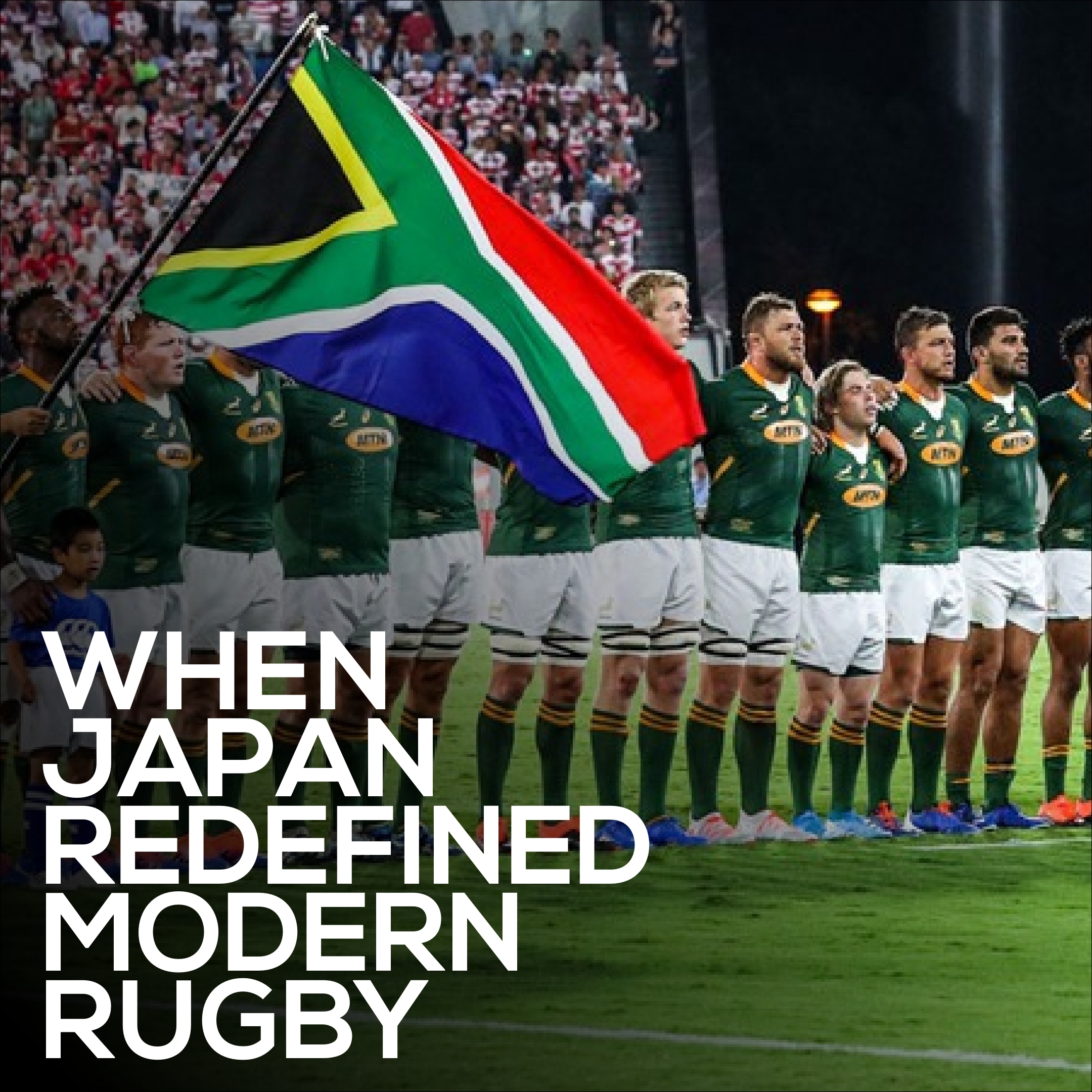Introduction
The Springboks Japan Shock wasn’t merely an upset — it was a revolution. On September 19, 2015, Japan stunned the rugby world by beating South Africa 34–32 in Brighton. Analysts called it the “Miracle of Brighton,” but for coaches like Rassie Erasmus, it was a mirror reflecting everything rugby had become — and everything it could be.
That day taught more than tactical lessons. It revealed the power of preparation, courage, and belief. For South Africa, the shock became the start of a long journey toward renewal. For Japan, it was proof that hard work and faith can overcome tradition.
Springboks Japan Shock: A Lesson in Adaptability
The Springboks Japan Shock revealed that adaptability beats tradition. Japan’s game plan was simple yet daring: play fast, keep possession, and tire out the heavier Springbok pack. Every move was executed with precision.
South Africa’s structure, built on strength, failed to adjust quickly enough. Rassie Erasmus later recognized this as a defining problem — rigidity in the face of change. His future teams would adapt on the fly, blending tactical variety with disciplined execution. The 2015 loss thus became the seed for a smarter, more flexible Springbok era.
Springboks Japan Shock: Rassie Erasmus’s Philosophy Shift
For Erasmus, the Springboks Japan Shock marked a turning point in leadership. He learned that great teams are built on accountability, not arrogance. When he took charge in 2018, his first goal was to rebuild trust — within players, staff, and fans.
He embraced transparency, encouraged honest conversations, and reminded his squad that the jersey alone doesn’t win games. By turning vulnerability into strength, Erasmus transformed the Springboks into a family united by purpose rather than expectation.
Springboks Japan Shock: The Science of Preparation
Japan’s preparation before the Springboks Japan Shock was legendary. Eddie Jones and his analysts studied every Springbok pattern, identifying where they could exploit space. It was meticulous, methodical, and fearless.
Erasmus carried that lesson into his coaching philosophy. He introduced data analytics, simulated match conditions, and built a mindset of continuous improvement. The Springboks learned that excellence is earned long before kickoff. Preparation isn’t routine — it’s a weapon.
Springboks Japan Shock: Belief Beyond Boundaries
The Springboks Japan Shock was built on belief that transcended logic. Japan’s players weren’t intimidated by history; they were inspired by it. Their self-belief turned pressure into fuel.
Erasmus later replicated that environment. He told his players that rugby is played as much in the mind as on the field. When the Springboks defeated England in the 2019 World Cup Final, that belief was evident. The seeds of that confidence were sown years earlier in Brighton.
Springboks Japan Shock: Respect as the Core of Success
Respect is the silent force behind the Springboks Japan Shock. South Africa’s underestimation became their undoing. Erasmus embedded respect into every part of his system — for opponents, referees, and teammates.
He often said, “When you respect the game, the game respects you back.” The Springboks learned that arrogance blinds; humility sharpens. That shift in attitude helped restore pride and professionalism to the green and gold.
Springboks Japan Shock: Redefining Global Rugby
The world of rugby changed after the Springboks Japan Shock. Smaller nations saw possibility; larger nations saw warning. Japan’s victory accelerated global development, creating a more competitive, dynamic game.
For Erasmus, it was proof that the sport needed evolution. The Springboks’ transformation mirrored rugby’s own — less predictable, more creative, and deeply human. The lessons of 2015 continue to ripple through every international tournament today.
FAQs
Q1: What is the meaning of Springboks Japan Shock?
It’s the 2015 World Cup upset where Japan beat South Africa 34–32, changing rugby forever.
Q2: How did it influence Rassie Erasmus?
It reshaped his coaching vision, focusing on adaptability, preparation, and respect.
Q3: Why is it called rugby’s biggest upset?
Because Japan defied every expectation to defeat a rugby superpower with precision and courage.
Conclusion
The Springboks Japan Shock stands as one of the defining events in sports history. It humbled champions, inspired nations, and taught the world that success begins with respect and ends with belief. For South Africa, it marked the rebirth of a dynasty. For Japan, it was proof that dreams can be engineered. In that shared moment of shock, rugby found its soul.




